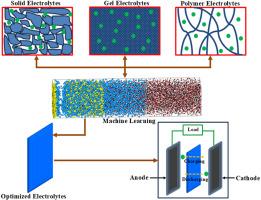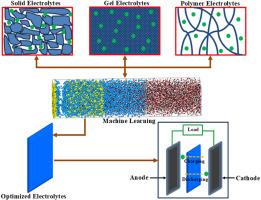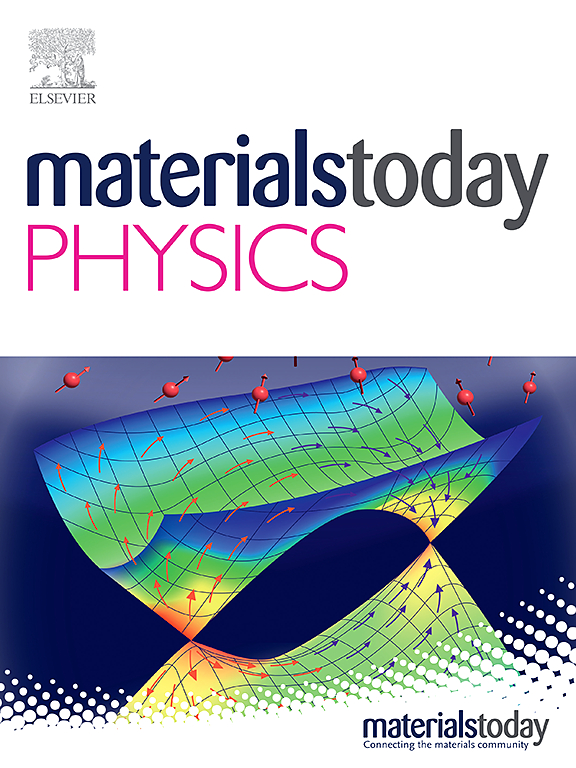基于机器学习的电解质创新在储能应用中的研究进展
IF 9.7
2区 材料科学
Q1 MATERIALS SCIENCE, MULTIDISCIPLINARY
引用次数: 0
摘要
固态储能技术的进步对于解决全球能源问题至关重要,电解质对于提高锂离子电池和下一代电子产品等系统的性能、安全性和可持续性至关重要。这篇综述强调了机器学习(ML)在电解质材料研究中的变革性影响,包括液体、固态、聚合物和复合电解质。ML通过利用计算和实验数据来创建离子电导率、热稳定性和电化学性能的预测模型,从而减少对资源密集型试错方法的依赖,从而增强了材料的发现。重大进展包括聚合物信息学,使用复杂的生成模型和图神经网络将复杂的聚合物结构与功能质量联系起来。先进的数字化和广泛的数据库是这一倡议的基础,有助于澄清结构-属性联系。此外,基于ml的复合电解质和离子液体优化解决了设计问题,从而协同提高了导电性、机械强度和稳定性。这些改进标志着范式的转变,促进了加速创新周期和可持续解决方案。这篇综述强调了弹性数据生态系统、跨学科合作和先进信息学工具在影响电解质材料和储能技术发展中的重要性。本文章由计算机程序翻译,如有差异,请以英文原文为准。


A review on electrolyte innovation enabled by machine learning for energy storage applications
Progress in solid state energy storage technologies is essential for tackling global energy issues, with electrolytes being crucial for improving the performance, safety, and sustainability of systems such as lithium-ion batteries and next-generation electronics. This review emphasizes the transformative influence of machine learning (ML) in the investigation of electrolyte materials, encompassing liquid, solid-state, polymer, and composite electrolytes. ML enhances material discovery by utilizing computational and experimental data to create predictive models for ionic conductivity, thermal stability, and electrochemical performance, thereby diminishing dependence on resource-intensive trial-and-error approaches. Significant advancements encompass polymer informatics, which associates intricate polymer structures with functional qualities using sophisticated generative models and graph neural networks. Advanced digitization and extensive databases are fundamental to this initiative, facilitating the clarification of structure-property linkages. Furthermore, ML-based optimization of composite electrolytes and ionic liquids tackles design problems, resulting in synergistic enhancements in conductivity, mechanical strength, and stability. These improvements signify a paradigm shift, promoting accelerated innovation cycles and sustainable solutions. This review emphasizes the significance of resilient data ecosystems, interdisciplinary cooperation, and advanced informatics tools in influencing the development of electrolyte materials and energy storage technologies.
求助全文
通过发布文献求助,成功后即可免费获取论文全文。
去求助
来源期刊

Materials Today Physics
Materials Science-General Materials Science
CiteScore
14.00
自引率
7.80%
发文量
284
审稿时长
15 days
期刊介绍:
Materials Today Physics is a multi-disciplinary journal focused on the physics of materials, encompassing both the physical properties and materials synthesis. Operating at the interface of physics and materials science, this journal covers one of the largest and most dynamic fields within physical science. The forefront research in materials physics is driving advancements in new materials, uncovering new physics, and fostering novel applications at an unprecedented pace.
 求助内容:
求助内容: 应助结果提醒方式:
应助结果提醒方式:


